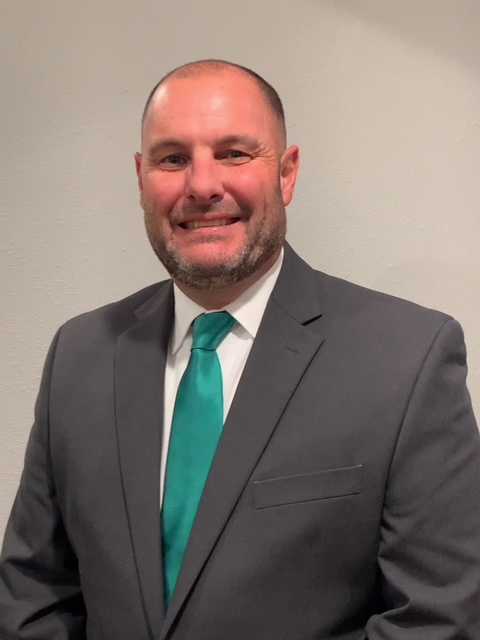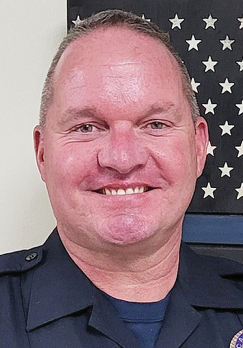It seems like all generations face challenging times.
But working together, they manage to cross hurdles and persevere.
This year is no different. Jefferson City and surrounding communities stood witness as one of the local hospitals overcame a cyber attack, as the region took on issues surrounding veteran suicides, as neighbors divided over Jefferson City bike trail signs on county roads, as lawmakers politicized the state's leading health position and as a fight unfolded over pavers in the plaza on Adrian's Island.
All of those issues, and many more, created opportunities for reporters to cover hot topics.
Annually, News Tribune staff members look back at the year and vote on which stories they believe to be the most important.
Here are the top 10, as voted on by reporters.
No. 1: Workforce housing
Perhaps recency bias played a role in this story rising to the top. But it is a story that has angered many in the Jefferson City area.
Sometimes the stories that dominate the headlines stay in the headlines for months at a time.
One of the issues that many in the community thought was something they could get behind was the effort to build workforce housing.
Boy, were we wrong.
This story goes back to 2019 and beyond. The May 22, 2019, tornado that struck Jefferson City destroyed hundreds of homes, many of which were rental properties.
After waiting more than three years for the federal government to distribute disaster funding, Cole County fell in line for more than $7 million planners hoped would go toward workforce housing.
Jefferson City divvied up the $7 million among the three developers who hoped to use it as leverage to get all-important tax credits from the federal government. All they needed was a resolution of support for each development by the city. Um, not so fast, some council members said. Five council members voted against each of the resolutions, creating ties.
Council members Jack Deeken, Ron Fitzwater, Mark Schreiber, Scott Spencer and Derrick Spicer each voted against the resolutions. Council members Jon Hensley, David Kemna, Mike Lester, Laura Ward and Erin Wiseman voted in favor of the resolutions.
Mayor Carrie Tergin broke each tie by casting her votes in support.
But the damage was done. Several council and community members vowed to send letters of opposition to the Missouri Housing Development Commission, which was tasked with narrowing down the field of those seeking tax credits. Although Jefferson City projects were among the highest-scoring in the state, the commission kicked them out of consideration earlier this month because of the opposition.
Housing supporters are considering their next moves.
No. 2: Redistricting
No issue bedeviled state lawmakers in 2022 quite like congressional redistricting.
The once-a-decade process happens in every state following the national census as a way to ensure representation in Congress stays proportional to population changes. State legislatures have often used the process to gerrymander districts, or divide voters into districts in a way that gives one party an electoral advantage over the other.
Members of the Senate's now-disbanded conservative caucus held the floor for weeks hoping to gum up the process and get other lawmakers to approve a map that would likely result in Missouri sending seven Republicans and one Democrat to Washington. The debate got ugly and stirred an already fractionalized Senate before members of the conservative caucus decided the congressional map was the last legislative item the upper chamber would consider before adjourning for the year.
With the use of parliamentary maneuvers a day before the Legislature adjourned, Senate leadership pushed forward a map maintaining the state's 6-2 representation in Congress with some alterations to district boundaries. It was quickly approved in the Missouri House and signed into law by Gov. Mike Parson.
No. 3: Assessor, local officials spar over reassessments
Cole County Assessor Chris Estes and other local officials have continuously squared off for more than a decade in a dispute that continued into December.
Western District Commissioner Harry Otto has pointed to many properties within the counties that have maintained the same value throughout Estes' tenure despite the office's mandate to reassess all properties on a biannual basis.
Estes has pointed to the county's insistence that his office transition to a different computer program he said has taken hundreds of hours of work time to correct and a short staff, while Western District Commissioner Harry Otto said the stagnating values could put the local levy in jeopardy.
Municipal government and local school officials have also raised concerns about the potential impact of stagnated values. The State Tax Commission, however, has found Estes' office to be in compliance up until a slight dip for its 2021 study.
Estes has committed to visit and visually assess all county properties over the next two cycles, half in 2023 and the other half in 2025, to ensure all reassessments are up to date.
The pair most recently faced off during a county budget hearing in early December, when an argument with Otto over the office's 2023 reassessment plans led to Estes walking out of the meeting.
No. 4: Jefferson City schools
Back in June, seven-year JC Schools Superintendent Larry Linthacum retired to take on a new position as the head of Special Olympics Missouri.
Linthacum looked back on successes during his time at the helm for the district: a 90-plus percent graduation rate, a bond issue that led to the construction of Capital City High School, higher participation in extracurricular activities, higher test scores, a placement rate above the state average at Nichols Career Center, and a district that remained open during COVID-19.
Deputy Superintendent Bryan McGraw was chosen from among 10 applicants to replace Linthacum.
McGraw served as superintendent at North Pocono School District in Pennsylvania for more than a decade prior to coming to Jefferson City.
McGraw has made it his mission to see JC Schools as a "District of Champions," which he said means excellence in all areas, from food service to activities to academics. McGraw has also placed an emphasis on recruiting and retaining staff and expanding Advanced Placement course offerings.
"Any student that is college-bound should take at least one advanced placement course before they leave Jeff City schools. We need to prepare them for the rigor of what is ahead of them in higher ed," McGraw told the News Tribune in July.
No. 5: Blair Oaks schools
Following a nearly two-month unexplained leave of absence, longtime Blair Oaks School District Superintendent Jim Jones retired in June. A separation agreement between Jones and the district shows that Jones received more than $66,000 from the district, which is described in the document as a "settlement payment to resolve an employment dispute."
During Jones' leave of absence and directly following his retirement, High School Principal Chris Marshall served as acting superintendent. In August, Mark Harvey was selected as interim superintendent for the 2022-23 school year. Harvey has served as an interim assistant superintendent at Oak Grove R-6 Schools, and before that was the superintendent at Pike County R-3 in Clarksville for more than a decade.
The Blair Oaks School board recently announced the hiring of Ben Meldrum, current Capital City High School principal, as a full-time superintendent beginning in the 2023-24 school year.
Meldrum has served as CCHS principal since it opened, and before that, he was principal at Simonsen Ninth Grade Center for five years. Prior to that, he was an assistant principal at Simonsen and a teacher at Nichols Career Center.
Meldrum and his wife, Jeni, have three children who attend Blair Oaks: Wyatt in 11th grade and Hattie and Hudson in eighth grade.
"I am very humbled and blessed to be the next superintendent at Blair Oaks. I look forward to working with an outstanding team of educators, the amazing students and the supportive community at Blair Oaks as we continue to build upon a solid foundation of success that those before me have helped lay," Meldrum told the News Tribune. "I will always cherish my time with the Jefferson City School District and truly value the relationships and experiences I have had. I am excited about the opportunity to work in the same school district with my kids as they continue their education."
No. 6: Record state budget
Missouri lawmakers created and passed a record-breaking $49 billion budget this year, funding several programs for the first time and making significant investments around the state and in the Capital City.
The budget fully funded the state's share of school transportation costs for the first time in 20 years, fully funded Lincoln University's land grant match for the first time, temporarily subsidized an increase in teacher salaries, directed $2.5 billion to expand Medicaid eligibility and appropriated hundreds of millions of dollars for water infrastructure improvements, broadband internet development and construction projects at 13 university and college campuses, among other requests. Lawmakers also approved a tax rebate program before Gov. Mike Parson vetoed it and called them back to the Capitol for a special session in the fall to pass permanent tax cuts.
Appropriations from the state budget kicked off a number of projects in Jefferson City, including construction of a multi-agency health and crime lab, construction of Lincoln's Health Sciences and Crisis Center, renovation of the Union Hotel and $300 million in renovations at the Capitol.
Passage of the largest budget in Missouri history, which was negotiated for much of the session, came down to the wire as state lawmakers gave final approval just hours before the deadline imposed by the state Constitution.
No. 7: Lincoln selects John Moseley
Although he'd been at the helm for more than a year and a half, John Moseley was officially named Lincoln University president near the end of January.
Moseley, the university's former athletic director and head basketball coach, had been serving in an interim capacity for about eight months before the Board of Curators offered him the permanent job.
"It's go time," he said at the beginning of the year. And go time it has been.
Under Moseley's leadership, Lincoln has filled most of its open administrative seats, started a $17 million renovation of its largest residence hall, restructured scholarships to provide automatic awards, reversed a decade-long trend of declining enrollment with a 2 percent increase in the fall and started on a salary survey to compare employee wages to those of their peers at other universities. He's been credited with bringing a fresh atmosphere to the university.
The former coach said he's as excited leading the university today as he was the first day he was selected.
"I feel really good about the progress that we've made in the course of this year and just excited for what I believe to be a really bright future for the university," he said.
Moseley said he's grateful for the support from everyone who wants to see Lincoln become the best it can be.
"It's been quite the ride over the last, I guess now, nearly 11 months since it became permanent," he said. "I love it. I'm really fortunate to get to do something that I'm passionate about at a place that I care deeply about. Knowing that there's a whole team of folks that are helping us move this institution into what we all believe it can become is extremely exciting for me."
Moseley said the university will continue focusing on student success and moving needles on enrollment, retention and graduation rates.
No. 8: Jefferson City police chief
When Roger Schroeder, the city's police chief of 23 years, reported plans of retirement, a search for someone to fill his shoes ensued.
During last spring and into the summer, Steve Crowell, the city administrator, remarked the list of candidates would be narrowed using a two-fold process. One committee reviewed applicants' credentials, another evaluated the candidates' "fit" for the top job. According to city charter, it is the city administrator who nominates a person for the position, which is solidified upon council's approval.
Crowell's process was revealed over the course of a few months, as well as the names of city, county, law enforcement officials and others serving on each of the two committees. Still, at least one councilman was unhappy with the progress of the search. Councilman Jack Deeken said he was displeased an apparent lack of law enforcement officials participating in the search, though as Crowell disclosed, the local sheriff, a detective and the Capitol police chief were serving on the search committees.
During a May 3 council meeting, Crowell assured the council it would be involved in the search and also stated: "I've probably hired and fired more police chiefs than anybody in the state. I get it."
Crowell nominated Capt. Eric Wilde for the top job in late June and his appointment received unanimous approval, as well as it was was welcomed verbally from many council members, including Deeken.
Wilde said in an interview shortly after that recruitment for the department was a top priority. He expressed in a speech at City Hall how humbled he was to have the position:
"It requires a lot patience, a lot more flexibility, a lot more ingenuity and more importantly, a lot more compassion."
Since becoming the chief, Wilde secured grant and city funding to deploy body-worn cameras and new car cameras for 90 police officers. Wilde also secured funding for two new positions: a grant manager and sergeant to oversee implementing and operating the body-camera system.
No. 9: Supreme Court rallies
For weeks, following the release of a draft version of the U.S. Supreme Court's ruling on a Mississippi case, anti-abortion supporters awaited confirmation that the high court had essentially struck down Roe v. Wade.
The 1973 case had set the standard 24-week window for abortion policy at the federal level.
In June, the Supreme Court ruled that Mississippi could ban abortions after 15 weeks, essentially giving each state its own say on the legality of abortion.
The decision spurred rallies for both sides of the debate. Anti-abortion activists rallied outside the Missouri Supreme Court on June 24, the day of the federal decision.
Missouri Gov. Mike Parson released a statement praising the court decision. Lt. Gov. Mike Kehoe and Missouri Secretary of State Jay Ashcroft spoke during the two-hour rally on the state's Supreme Court steps.
Hundreds of abortion rights activists rallied outside the federal courthouse in Jefferson City two days later. Speakers took turns sharing personal stories about how they shaped their perspectives on abortion.
They argued that overturning Roe v. Was was a mistake, which put a lot of women in danger. They pointed out that a Pew Research poll showed 61 percent of Americans believe abortion should be legal in most or all cases.
No. 10: Capitol Avenue homes
How to address blighted, but historical, homes is the crux of an expansive redevelopment plan along Capitol Avenue.
The city for years hoped some homes in the area might be restored through private developers, and it seems during the course of the next few months, its plan could come to fruition. It has already been decided by officials that three houses are reprieved from demolition after receiving interest. For five homes in the areas, however, demolition looms.
The city is likely to pinpoint what will happen with the remaining homes in question during the next few months or the empty lots that could succeed them.
The city approved a redevelopment plan that aims at seeking ownership of the at least 11 homes that have been declared blighted, dangerous and unsafe to inhabit or enter. Ownership of these properties fall to a single person, Barbara Buescher, and before some are offered to private redevelopers for restoration, the city seeks to acquire them through an eminent domain lawsuit.
Many homes feature a wide variety of architectural styles the National Register officially recognizes as: Italianate, Queen Anne, Classical, Colonial, Gothic and Spanish Revival style buildings.
Homes at 113 Adams St., 401 E. Capitol Ave. and 429 E. Capitol Ave, the former historic Buescher Funeral Home, garnered interest, which required prospective re-developers to pay a fee in escrow and to agree to submit a comprehensive rehabilitation proposal later on. The city will seek to acquire ownership before it requests formal proposals from those parties.
For five of the homes that did not receive interest during the city's six-week "call for interested parties" process, the city plans to tear the structures down, abating some of the area from its blighted and dangerous circumstances. It could occur within the first two weeks of January.
The city has already acquired ownership of three of the homes involved in the plan -- 413 E. Capital Ave., 419 E. Capitol Ave. and 517 E. Capitol Ave. -- through an eminent domain lawsuit.
It asked interested developers to submit a comprehensive proposal for rehabilitation visions. Since the deadline, the city hasn't made any details public with results of any submissions.
City officials said the council will have the final vote on whether it approves any proposals that are submitted.







